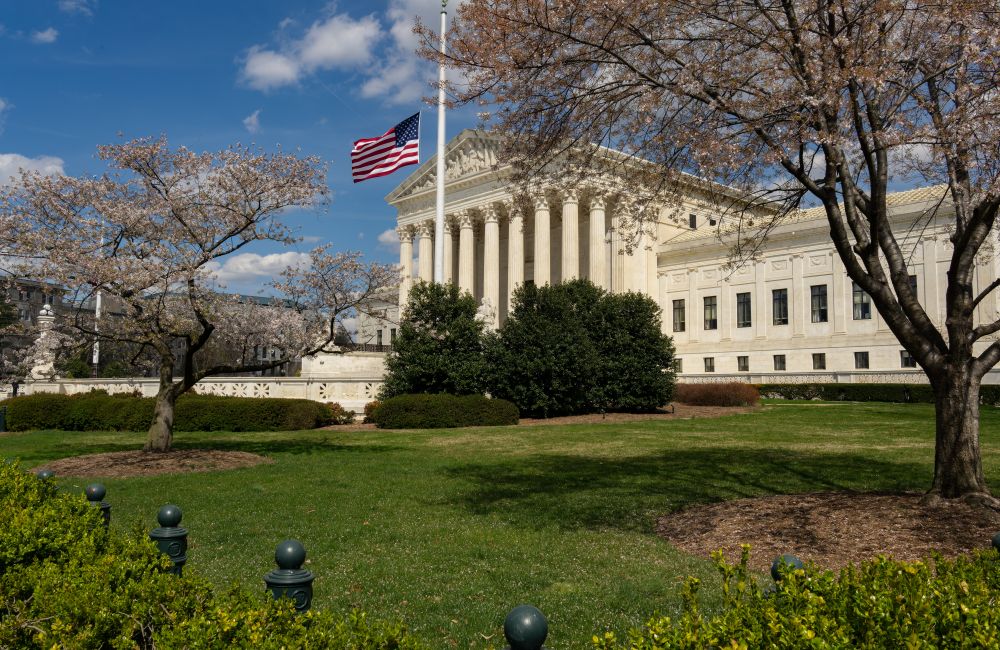In a rare moment of unity, the Supreme Court handed down a unanimous decision in Groff v. DeJoy this summer, marking the end of the “more than de minimis” standard for religious accommodations under Title VII. Released on June 29, 2023, the decision spanned a mere 26 pages (29 if you include the concurring opinion). A previous blog post discussed the history of the case and the opinions expressed by the justices during oral argument. Now we have access to the decision that will define efforts for employers going forward.
Providing Context. Mr. Groff’s lawsuit originated from a dispute with his employer, the United States Postal Service. A devout Christian, Mr. Groff requested Sundays off for his religious observance after a contract with Amazon required employees to work on Sundays. Although attempts were made to work with Groff’s schedule, he ultimately missed 24 days of work and resigned following disciplinary action. In his lawsuit, Groff alleged this was a violation of Title VII of the Civil Rights Act of 1964. Despite such a standard claim, the case was muddied by a 1977 Supreme Court decision called Trans World Airlines, Inc. v. Hardison.
Title VII, as many know, prohibits discrimination in employment on the basis of race, religion, sex, and national origin. Section 2000e(j) of Title VII defines religion as “includ[ing] all aspects of religious observance and practice. . . unless an employer demonstrates that he is unable to reasonably accommodate to an employee’s or prospective employee’s religious observance or practice without undue hardship on the conduct of the employer’s business,” an employer must accommodate religion. This definition of religion was incorporated into Title VII in 1972 following disagreement by courts over what was required of employers in accommodating religion.
The real conflict between Title VII and 1977’s Hardison began with the phrase undue hardship. As the Court in Hardison interpreted it, employers would experience an undue hardship if they shouldered anything more than a de minimis cost of accommodation. Focusing on the protection that Title VII afforded to “seniority systems” (as Hardison had sought days off at the expense of more senior employees’ first choice of shifts), the Court avoided discussing how to identify where costs tipped from de minimis to an undue hardship. Writing for the dissent at the time, Justice Marshall thought the decision was contrary to the very intentions of the Title VII amendments. He even offered solutions to the employment dispute that came at some expense but would have valued both the seniority system and the religious accommodations, although evidently, the majority didn’t find these compelling.
Groff v. DeJoy. Writing for the majority, Justice Alito made quick work of the decision. Walking through the history of Title VII and case law interpreting it, Justice Alito included a clear explanation of Hardison. As expected, the majority relied heavily on Marshall’s dissent in the prior case to support their opinion. One of the biggest issues with the “more than de minimis” standard, is that it was not, in fact, the only descriptor the Court used in Hardison – where “substantial costs or expenditures” would result, an accommodation was not required under Title VII. Thus, the majority noted, the de minimis standard wasn’t even clear. The majority further agreed with Justice Marshall’s 1972 dissent – “more than de minimis” was clearly not the intended standard of the Title VII amendments.
Instead, the Court dictated the new standard: that ‘undue hardship’ to a company is shown when “an accommodation would result in substantial increased costs in relation to the conduct of its particular business.”
Commonly, a hardship is understood as “something hard to bear” but “more severe than a mere burden.” Adding on the modifier “undue,” Title VII can be read as prohibiting burdens or costs where such adversity can’t be justified. To avoid overruling Hardison and opening up the complications that come with that, the opinion points to the wording that existed in Hardison that was repeatedly ignored – “substantial expenditures” or “substantial costs.” Thus, the de minimis interpretation can be written off as a “mistaken view” by many that was in need of clarification.
It’s with this clarified standard that the Court leaves us. Justice Marshall would be content. Religious accommodations will demand more from employers than they did in the past, though for employers that have taken the spirit of Title VII close to heart and provided accommodations beyond a minimum cost, your past efforts have prepared you for the future.
If you have any questions regarding accommodations and complying with Title VII or New York law prohibiting religious discrimination, please don’t hesitate to contact our office.

